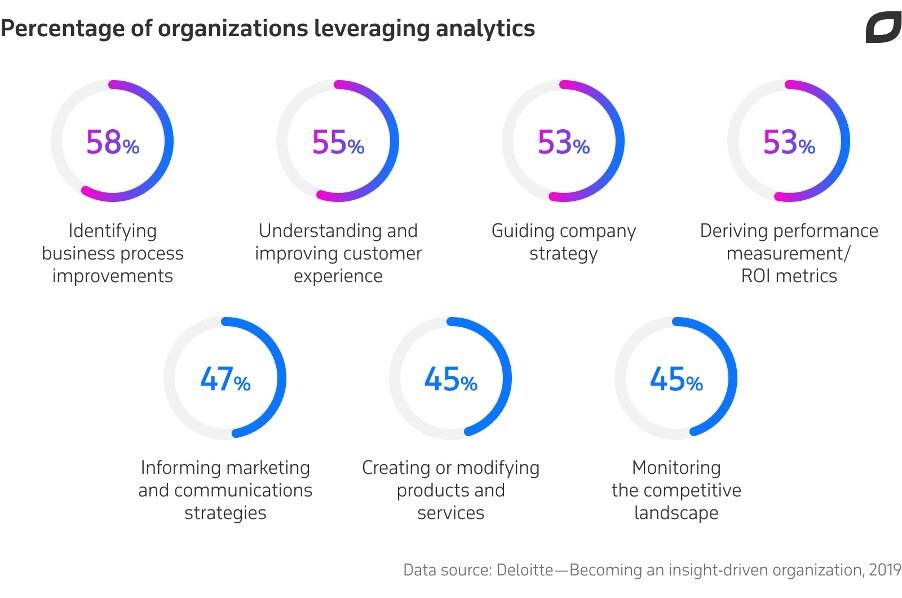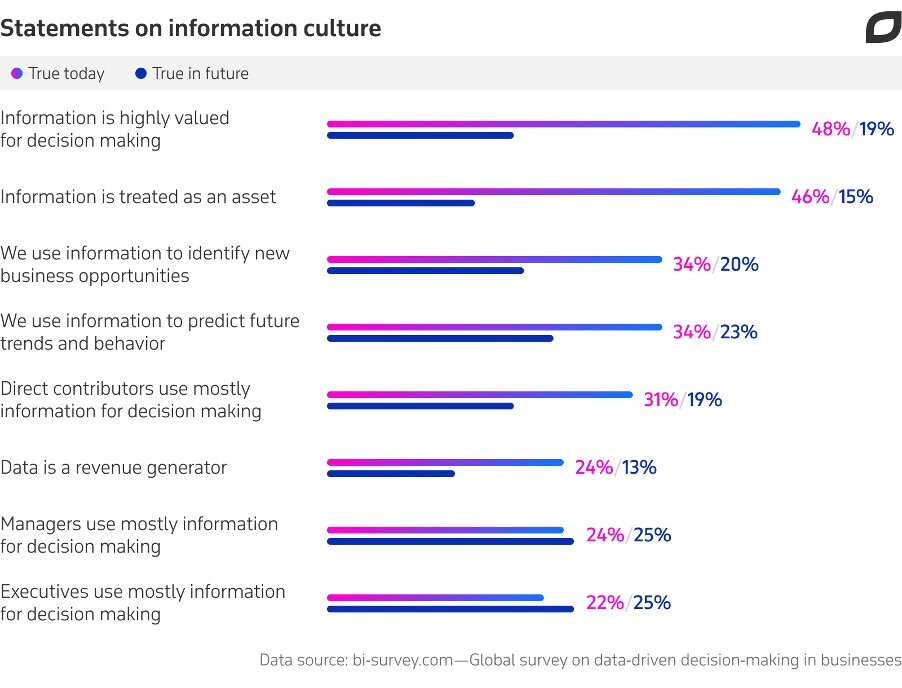Intuition And Experience Vs. Data-Driven Decision Making
Balancing intuition with fact-based decisions is essential to business success
Our world continues to change at an incredible pace. The COVID-19 crisis has exposed and undone our strongest intuitions about the digital landscape as people head online to adapt to life, work, and a world in crisis.
Traditionally, business decision-making favours the gut feelings and experiences of higher-level management in organizations.
The advancement of digital technology that captures real-time data is challenging the status quo of business decision-making in a big way. The rise of business intelligence and analytics has altered the traditional way of making business decisions.
Data-driven decision making and gut feelings often come up as two opposing extremes, with managers’ preferences often swinging toward the latter. In fact, BI Survey research showed that 58% of the companies surveyed based half or more of their decisions on gut feelings or experience over data. This habit of using one’s intuition most likely remains the critical tool of business decision-making simply because it has been the best evaluator. Meanwhile, computer-based data analysis has only recently challenged this.

Deloitte published a whitepaper “Becoming an insight-driven organization,” identifying 7 ways organizations leverage analytics to improve key business outcomes, such as:
- Identifying business process improvements
- Understanding and improving customer experience
- Guiding company strategy
- Deriving performance measurement/ROI metrics
- Informing marketing and communications strategies
- Creating or modifying products and services
- Monitoring the competitive landscape
Napoleon Bonaparte is widely regarded as a military genius and one of the finest commanders in history. The famous commander fought over 70 battles, losing only seven. He won nearly 90% of his battles, and we believe that this is because he favoured analyzing strategies and tactics his opponents would carry out before any war.
The more information he obtained about his opponents, the better positioned he was in terms of strategizing his troops for winning a battle.
The Benefits of Data-Driven Decision Making
In a survey conducted by Harvard Business Review Analytic Services, 80 per cent of the respondents say that they rely on data in their roles, and 73 per cent say their fields rely on data for decision-making.
Filippo Passerini, the group president of global business services and CIO at Procter & Gamble, has acknowledged that data analytics accelerated the company’s decision-making because “everyone is now looking at the same reality.”

Data-Driven Organization Assessment & Report | CADS.AI
Ensure your Digital Transformation success with the DDO Report assesses and aligns your organization with your goals and offers fixes and recommendation for gaps.
In an interview, he said that “decisions come down to ‘what’, ‘why’, and ‘how’.” Non-data-driven organizations often spend a lot of time debating the ‘what’ during decision-making because the different departments have different data and points of reference. When you sync everything up into the same version of the truth, everyone will focus on the same problem and will be able to work together for troubleshooting and problem-solving.
Another interview, this time with Christopher C. Williams, strategy executive at J.P. Morgan Chase, revealed that analytics had been a competitive advantage for companies as data-driven decision-making brings more superior business results than companies making decisions based on gut feelings. Business executives can now understand all the linkages and connections and historical bases for their decisions. This, in turn, helps them make wiser and more strategic decisions compared to previously.

BI Survey conducted a global survey on data-driven decision-making in businesses, and the study reflected the high growth potential of data and information culture for the coming years.
Although large corporations turn to a data-driven decision-making approach, intuitive-based decision-making is still essential for business growth. Someone who has been on a battlefield long enough has his wisdom and wits about him.

CADS.AI Skills Intelligence Platform
Tracks & helps employee's skills to match with your business goals. Be it for efficiency, career growth or new business projects.
Benefits of Intuition and Experience-based Decision Making
Scientists have found that the gut feeling is, in fact, better than analytical thinking when the decisions involve risk calculations and uncertainty. In a world with too much information, a highly unstable yet complicated information parsing process may lead to even more confusion. So ideally, leaders should not omit intuition altogether in the face of doubt.
Many business icons credit their success to gut feelings and instincts, often against conventional wisdom. Such intuitive decisions allow them to introduce new solutions, navigate a blue ocean strategy, and create new demand.
So, Which Way Is Better?
Decision-making is a complex process, and it can be said that there is no decision made with absolute certainty. So following only one’s intuition may seem excessive, but to be solely based on facts and not consider our brain’s abilities, it would still be an exaggeration.
When facing a critical situation that is highly unpredictable, making decisions based on gut feelings and intuition could bring greater possibilities.
In conclusion, the best decision-making approach is to have a balance and brilliant combination between intuition and data, and between human and digital.
Cultivate a data-driven culture and leadership within your organization, as they are critical to your business.
Source: Itransition’s take on data-driven decision making
Source: Balancing Guts and Data Analytics in Decision Making:





